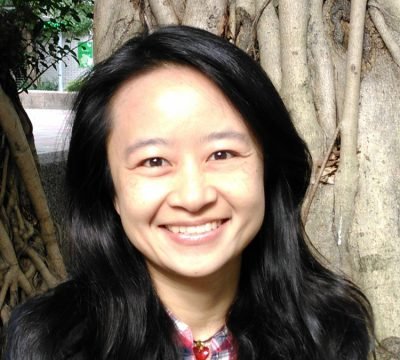Chemistry Tuition
You Want To See Rapidly-Improved Results
We Have Singapore's Largest Team Of Effective Private Tuition Teachers*
Latest MOE Syllabus & Exam Requirements
*Based on feedback and reviews by parents and students every year since 2006

Chemistry Tuition | Tuition Chemistry | Chemistry Tuition Singapore | O Level Chemistry Tuition | Chemistry Tuition JC
Singapore Tuition is single-minded in helping you boost your scores.
Starting today.
Our tuition coordinators are former MOE teachers from good schools.
Every year since 2006, we have helped satisfied parents and students hire their perfect tutors.
We are very familiar with how to properly shortlist and interview the correct home tutors before we show you between 4 to 10 profiles of qualified tutors – within 12 (usually 6) hours.
Each of these private tutors have proven experience in dependably helping their students’ grades quickly improve by at least 10 to 20 marks – as shown in the good feedback that parents had given to us.
Our team of 31,000 experienced tutors comprise MOE teachers, PhD-tutors, graduated/post-graduate (Master’s)/undergraduate tutors.
Each of our accomplished tutors have between 2 to over 30 years of teaching and home tutoring experience in primary/secondary school, junior college, polytechnic and university levels.
We have a strong team of tuition teachers who specialize in preparing students for the important PSLE, GCE O and A Level exams.
Every few weeks, there are tests, assessments, and exams in school. Once any student does not pay careful attention in class for 1 to 2 lessons, it is close to impossible to catch up.
Being wrongly-prepared for your school and national exams will impact your prospects of being admitted to the class, school and university of your choice.
Tutors from Singapore Tuition will ensure that within 4 lessons, you will:
- Learn how to prevent the common mistakes and wrong habits that will lead you to writing imprecise answers
- Avoid “mental blocks”, cope with exam stress, prevent any tendency to make careless mistakes
- We will show you crucial analytical steps that lead you to the right answers, no matter how “tricky” the questions are
- Difficult questions will not surprise you any more, because you would be familiar with the skills you need in order to correctly answer what is required
- Pace yourself, so that you have enough time to answer every exam question, as well as to check your answers at least once before you hand in your work
- Start on a systematic approach to strengthen the answering skills that require you to compare, contrast and use critical/creative thinking techniques
Your grades will quickly improve by at least 10 to 25 marks – as shown in the good feedback that parents had given to us.

Hire the best Chemistry tuition teachers from our large database - and have peace of mind that your grades will improve
Tutors: Please Ensure That You Have Registered At: https://singapore-tuition.com/latest-tuition-jobs-many-primary-secondary-jc/
We Are Not Able To Accept Any Tutor Registrations Through This Hire Tutors Form. Thank You






Prepare well.
Put yourself ahead of those who are competing with you to get into a good class, school or university.
You will have a successful career.
Over 31,000 experienced tutors
Dependable & Qualified Private Tutors
Latest MOE Syllabus
You can be on your way to an easy distinction
Improve by 10 to 25 marks within 1 semester
Reliable professional tuition teachers
Latest syllabus and exam requirements
Trusted by parents and students. Every year.
Featured Professional Tutors
Mr SK has 3 years of Chemistry tuition experience. He is NIE-trained, and taught at MOE schools for 14 years. Mr SK has a Bachelor’s in Environment and Energy Chemistry from NUS. His private tuition students attended Westwood Secondary School, Springfield Secondary School, Nan Chiau High School, St Anthony’s Canossian Secondary School, Paya Lebar Methodist Girls’ School (Secondary), and Ngee Ann Secondary School.
Ms MC has 14 years of Chemistry tuition experience. She has a PhD in Chemistry from Oxford University. Her Bachelor’s in Chemical Engineering was from NTU (First Class Honours). Ms MC’s home tuition students attended Methodist Girls’ School (Secondary), NUS High School of Mathematics and Science, Singapore Chinese Girls’ School, Eunoia Junior College, Raffles Institution, and Hwa Chong Institution.
Mr PT has 11 years of Chemistry tuition experience. He has a Bachelor’s in Chemistry from NTU. Mr PT was an MOE contract teacher for 3 years, and taught at tuition centres for 4 years. Mr PT’s private tuition students attended Serangoon Garden Secondary School, New Town Secondary School, Catholic High School, Eunoia Junior College, Catholic Junior College, and Raffles Institution.
Mr BG has 13 years of Chemistry tuition experience. He has a Bachelor’s in Chemical Engineering from NTU (2nd Upper Class Honours). Mr BG was an MOE contract teacher for 2 years and taught at tuition centres for 7 years. Mr BG’s private tuition students attended Ping Yi Secondary School, Unity Secondary School, CHIJ St Nicholas Girls’ School, Anderson Serangoon Junior College, Dunman High School, and National Junior College.
Ms CH has 6 years of Chemistry tuition experience. She is NIE-trained, and taught at MOE schools for 12 years. Ms CH’s Bachelor’s in Chemical Engineering was from NTU (2nd Upper Class Honours). Ms CH’s home tuition students attended Jurongville Secondary School, Damai Secondary School, CHIJ St Theresa’s Convent, Kuo Chuan Presbyterian Secondary School, NUS High School of Mathematics and Science, and Singapore Chinese Girls’ Secondary School Integrated Programme.
Ms ML has 9 years of Chemistry tuition experience. She was Head of Science at a group of leading tuition centres where she taught for 7 years. Ms ML has a Bachelor’s in Biochemistry from NUS (First Class Honours). Her private tuition students attended Yuan Ching Secondary School, Anglo-Chinese School (Independent), St Margaret’s Secondary School, Tampines Meridian Junior College, Hwa Chong Institution, and Eunoia Junior College.
Learn From An Expert - Score an A
Committed, Responsible Chemistry Tutors
Many Successful Students
Profiles Of Popular Chemistry Tutors
Mr RC has 14 years of Chemistry tuition experience. He has a Master’s in Chemistry from NUS. His Bachelor’s in Biochemical Engineering was from NTU (2nd Upper Class Honours). Mr RC was Head of Science at a group of tuition centres, where he taught for 11 years. Mr RC’s private tuition students attended Chua Chu Kang Secondary School, Fuchun Secondary School, Hai Sing Catholic School, Methodist Girls’ School (Secondary) IB programme, Dunman High School, and Tampines Meridian Junior College.
Mr TS has 3 years of Chemistry tuition experience. He has a Bachelor’s in Chemistry from NUS. Mr TS taught at a tuition centre for 1 year. His private tuition students attended Queensway Secondary School, Tanjong Katong Girls’ School, Cedar Girls’ Secondary School Integrated Programme, Temasek Junior College, Anderson Serangoon Junior College, and Catholic Junior College.
Ms WKP has 11 years of Chemistry tuition experience. She has a Master’s in Chemistry from Northwestern University. Her Bachelor’s in Chemical and Biomolecular Engineering was from NTU (First Class Honours). Ms WKP was an MOE contract teacher for 2 years and taught at leading tuition centres for 9 years. Ms WKP’s home tuition students attended St Gabriel’s Secondary School, Victoria School Integrated Programme, Hai Sing Catholic School, Anglo-Chinese Junior College, National Junior College, and Raffles Institution.
Mr CF has 9 years of Chemistry tuition experience. He is NIE-trained, and taught at a junior college for 11 years. Mr CF has a Bachelor’s in Chemistry from NUS (Honours). His private tuition students attended River Valley High School, Yishun Innova Junior College, Eunoia Junior College, Anderson Serangoon Junior College, Victoria Junior College, and National Junior College.
Mr GH has 5 years of Chemistry tuition experience. He has a Bachelor’s in Chemistry and Biological Chemistry from NTU (Honours). Mr GH’s home tuition students attended CHIJ St Nicholas Girls’ School Integrated Programme, Holy Innocents’ High School, Yuhua Secondary School, Catholic Junior College, St Joseph’s Institution, and Victoria Junior College.
Ms OST has 13 years of Chemistry tuition experience. She has a Master’s in Materials Chemistry from NUS. Her Bachelor’s in Nanoscience Chemistry was from NUS (2nd Upper Class Honours). Ms OST wrote the Chemistry secondary school and junior college curriculum content for a group of tuition centres, where she taught for 6 years. Ms OST’s private tuition students attended CHIJ St Theresa’s Convent, Catholic High School, Yusof Ishak Secondary School, Raffles Institution (Secondary) Integrated Programme, Jurong Pioneer Junior College, and St Andrew’s Junior College.
Mr CLM has 9 years of Chemistry tuition experience. He has a Master’s in Chemistry from the California Institute of Technology. Mr CLM’s Bachelor’s in Materials Chemistry was from NUS (First Class Honours). His home tuition students attended CHIJ St Nicholas Girls’ School, Catholic High School, Anglo-Chinese School (Barker Road), Hwa Chong Institution, Raffles Institution, and National Junior College.
Ms RN has 7 years of Chemistry tuition experience. She has a Bachelor’s in Chemical and Biomolecular Engineering from NTU (2nd Upper Class Honours). Ms RN was an MOE contract teacher for 2 years. Her private tuition students attended CHIJ Secondary (Toa Payoh), Fairfield Methodist School (Secondary), Riverside Secondary School, Tampines Meridian Junior College, St Joseph’s Institution, and Nanyang Junior College.
Ms BP has 4 years of Chemistry tuition experience. She has a Master’s in Chemical and Biomolecular Engineering from NTU. Her Bachelor’s in Chemistry was from NTU (2nd Upper Class Honours). Ms BP was an MOE contract teacher for 2 years. Her private tuition students attended Juying Secondary School, Deyi Secondary School, Raffles Girls’ School (Secondary) Integrated Programme, Singapore Chinese Girls’ Secondary School Integrated Programme, Eunoia Junior College, and Hwa Chong Institution.
Mr DS has 12 years of Chemistry tuition experience. He was a Post-doctoral Fellow at the Massachusetts Institute of Technology (MIT). His PhD in Chemistry was from MIT, and his Bachelor’s in Medicinal Chemistry was from NUS (First Class Honours). Mr DS’s private tuition students attended River Valley High School Integrated Programme, Paya Lebar Methodist Girls’ School (Secondary), Nanyang Girls’ High School Integrated Programme, Anglo-Chinese Junior College, Victoria Junior College, and Dunman High School.
Ms HCF has 7 years of Chemistry tuition experience. She has a Bachelor’s in Chemical Engineering from NTU. Ms HCF was an MOE contract teacher for 2 years and taught at tuition centres for 5 years. Ms HCF’s home tuition students attended Fuchun Secondary School, Naval Base Secondary School, CHIJ St Nicholas Girls’ School, Anglo-Chinese Junior College, Jurong Pioneer Junior College, and Victoria Junior College.
Mr GN has 13 years of Chemistry tuition experience. He has a PhD in Chemistry from Oxford University. Mr GN’s Bachelor’s in Analytical Chemistry was from NUS (First Class Honours). Mr GN’s private tuition students attended St Joseph’s Institution, Singapore Chinese Girls’ Secondary School Integrated Programme, NUS High School of Mathematics and Science, National Junior College, Eunoia Junior College, and Hwa Chong Institution.
Mr WT has 4 years of Chemistry tuition experience. He has a Bachelor’s in Chemistry from NTU. Mr WT was an MOE contract teacher for 3 years. Mr WT’s private tuition students attended Christ Church Secondary School, Kuo Chuan Presbyterian Secondary School, Singapore Chinese Girls’ School, Anglo-Chinese Junior College, Nanyang Junior College, and River Valley High School.
Mr AG has 9 years of Chemistry tuition experience. He has a Bachelor’s in Biomedical Engineering from NTU (Honours). Mr AG’s home tuition students attended Bartley Secondary School, Cedar Girls’ Secondary School, Evergreen Secondary School, St Andrew’s Junior College, River Valley High School, and Yishun Innova Junior College.
Mr SC has 2 years of Chemistry tuition experience. He has a Bachelor’s in Chemistry from NUS. Mr SC’s private tuition students attended Paya Lebar Methodist Girls’ School (Secondary), Bedok South Secondary School, Commonwealth Secondary School, Guangyang Secondary School, Loyang View Secondary School, and Anglo-Chinese Junior College.
Ms GWP has 3 years of Chemistry tuition experience. She is NIE-trained and taught at MOE schools for 9 years. Ms GWP’s Bachelor’s in Chemistry was from NUS (Honours). Her private tuition students attended St Andrew’s Secondary School, Loyang View Secondary School, Sembawang Secondary School, Nanyang Girls’ High School Integrated Programme, Naval Base Secondary School, and Victoria School.
Ms YS has 7 years of Chemistry tuition experience. She has a PhD in Chemistry from Princeton University. Ms YS’s Bachelor’s in Materials Chemistry was from NUS (First Class Honours). Her private tuition students attended Singapore Chinese Girls’ School. Raffles Girls’ School (Secondary) Integrated Programme, Montfort Secondary School, National Junior College, Hwa Chong Institution, and Dunman High School.
Mr LM has 4 years of Chemistry tuition experience. He has a Bachelor’s in Biochemical Engineering from NTU. Mr LM taught at a tuition centre for 4 years. His private tuition students attended St Hilda’s Secondary School, Meridian Secondary School, Hougang Secondary School, Nanyang Junior College, Temasek Junior College, and Eunoia Junior College.
Ms TCK has 7 years of Chemistry tuition experience. She has a Master’s in Biomolecular and Biomedical Sciences from NUS. Her Bachelor’s in Medicinal Chemistry was from NUS (2nd Upper Class Honours). Ms TCK’s private tuition students attended St Anthony’s Canossian Secondary School, River Valley High School Integrated Programme, Anglican High School, Eunoia Junior College, Tampines Meridian Junior College, and Jurong Pioneer Junior College.
Ms MH has 9 years of Chemistry tuition experience. She has a Bachelor’s in Chemical Engineering from NTU. Ms MH taught at a tuition centre for 3 years. Her private tuition students attended Tampines Secondary School, Anglo-Chinese School (Independent), Zhenghua Secondary School, Anderson Serangoon Junior College, National Junior College, and Tampines Meridian Junior College.
Ms RS has 4 years of Chemistry tuition experience. She is NIE-trained, and taught at junior colleges for 7 years. Ms RS has a Bachelor’s in Chemistry and Biological Chemistry from NTU (Honours). Her home tuition students attended Yishun Innova Junior College, National Junior College, Hwa Chong Institution, Anderson Serangoon Junior College, Catholic Junior College, and River Valley High School.
Mr HKE has 12 years of Chemistry tuition experience. He has a Bachelor’s in Chemistry from NUS. Mr HKE’s home tuition students attended Kent Ridge Secondary School, Gan Eng Seng School, River Valley High School Integrated Programme, Nanyang Junior College, Anglo-Chinese Junior College, and St Andrew’s Junior College.
Ms SMM has 4 years of Chemistry tuition experience. She has a Bachelor’s in Materials Chemistry from NUS (2nd Upper Class Honours). Ms SMM taught at a leading tuition centre for 2 years. Her private tuition students attended Raffles Girls’ School (Secondary), Ngee Ann Secondary School, Methodist Girls’ School (Secondary), Anglo-Chinese Junior College, Temasek Junior College, and Victoria Junior College.
Mr GC has 9 years of Chemistry tuition experience. He has a Bachelor’s in Chemical Engineering from NTU (Honours). Mr GC taught at a leading tuition centre for 5 years. His private tuition students attended Tanglin Secondary School, Bowen Secondary School, Methodist Girls’ School (Secondary), Temasek Junior College, Yishun Innova Junior College, and Victoria Junior College.
Mr AK has 4 years of Chemistry tuition experience. He has a Bachelor’s in Biomedical Engineering from NTU. His home tuition students attended Bowen Secondary School, Clementi Town Secondary School, Crescent Girls’ School, Dunman High School, Anderson Serangoon Junior College, and St Andrew’s Junior College.
Ms RL has 3 years of Chemistry tuition experience. She is NIE-trained and taught at MOE schools for 12 years. Ms RL has a Bachelor’s in Chemical and Biomolecular Engineering from NTU (2nd Upper Class Honours). Her private tuition students attended Maris Stella High School, CHIJ St Joseph’s Convent, Peicai Secondary School, Northland Secondary School, Marsiling Secondary School, and Jurong West Secondary School.
Mr FP has 6 years of Chemistry tuition experience. He has a Bachelor’s in Chemical Engineering, and taught at a tuition centre for 2 years. Mr FP’s private tuition students attended CHIJ St Nicholas Girls’ School, Yishun Secondary School, Swiss Cottage Secondary School, Anderson Serangoon Junior College, St Andrew’s Junior College, and Victoria Junior College.
Ms SL has 11 years of Chemistry tuition experience. She has a Master’s in Chemical Engineering Sciences from NUS, and a Bachelor’s in Analytical Chemistry from NUS (2nd Upper Class Honours). Ms SL’s home tuition students attended St Andrew’s Secondary School, Victoria School, Dunman High School Integrated Programme, National Junior College, Eunoia Junior College, and Anglo-Chinese Junior College.
Mr YT has 17 years Chemistry tuition experience. He is NIE-trained and taught at a junior college for 6 years. Mr YT has a Bachelor’s in Chemistry from NUS (First Class Honours). His private tuition students attended Temasek Junior College, National Junior College, Hwa Chong Institution, Anderson Serangoon Junior College, Eunoia Junior College, and Dunman High School.
Ms PHN has 9 years of Chemistry tuition experience. She has a PhD in Chemistry from NUS and a Bachelor’s in Chemical Engineering (First Class Honours) from NUS. Her home tuition students attended Regent Secondary School, Cedar Girls’ Secondary School Integrated Programme, Methodist Girls’ School (Secondary) IB programme, Raffles Institution (Secondary) Integrated Programme, and St Patrick’s School.
You Can Be On Your Way To An Easy Distinction
Improve By 10 to 25 Marks This Semester
Learn important exam skills from experienced, highly qualified Chemistry tutors
The MOE states that students must be familiar with:
- Experimental Chemistry
- Experimental design
- Methods of purification and analysis
- Identification of ions and gases
- Apparatus for the measurement of time, temperature, mass and volume,
- including burettes, pipettes, measuring cylinders and gas syringes
- Apparatus for a variety of simple experiments, including collection of gases and measurement of rates of reaction
Your Qualified Chemistry Tuition Teacher Will Clearly Explain To You:
- Methods of purification and analysis
- Methods of separation and purification for the components of mixtures
- Use of a suitable solvent, filtration and crystallisation or evaporation
- Sublimation
- Distillation and fractional distillation
- Use of a separating funnel
- Paper chromatography
- Separation and purification methods
- Solid-solid
- Solid-liquid
- Liquid-liquid (miscible and immiscible)
- Paper chromatograms including comparison with ‘known’ samples and the use of Rf values
- Use locating agents in the chromatography of colourless compounds
- Melting point and boiling point data the identities of substances and their purity
- Kinetic particle theory
- Atomic structure
- Structure and properties of materials
- Ionic bonding
- Covalent bonding
- Metallic bonding
- The relative charges and approximate relative masses of a proton, a neutron and an electron
- The structure of an atom as containing protons and neutrons (nucleons) in the nucleus and electrons arranged in shells (energy levels)
- Proton (atomic) number and nucleon (mass) number
- Isotopes
- The numbers of protons, neutrons and electrons in atoms and ions given proton and nucleon numbers
- Formation of a covalent bond by the sharing of a pair of electrons in order to gain the electronic configuration of a noble gas
- The arrangement of electrons in other covalent molecules
- The physical properties (including electrical property) of covalent substances to their structure and bonding
- Metals as a lattice of positive ions in a ‘sea of electrons’
- Electrical conductivity of metals to the mobility of the electrons in the structure
- Cations: linked to the reactivity series
- Anions: halides, hydroxides and sulfates (e.g. aqueous copper(II) sulfate and dilute sodium chloride solution (as essentially the electrolysis of water))
- Concentration effects (as in the electrolysis of concentrated and dilute aqueous sodium chloride)
- Electrolysis of aqueous copper(II) sulfate with copper electrodes as a means of purifying copper
- The electroplating of metals, e.g. copper plating
- Enthalpy change in terms of exothermic (∆H negative) and endothermic (∆H positive) reactions
- Energy changes by energy profile diagrams, including reaction enthalpy changes and activation energies
- Bond breaking as an endothermic process and bond making as an exothermic process
- Overall enthalpy changes in terms of the energy changes associated with the breaking and making of covalent bonds
- Hydrogen, derived from water or hydrocarbons, as a potential fuel, reacting with oxygen to generate electricity directly in a fuel cell
- Effect of concentration, pressure, particle size and temperature on the speeds of reactions and explain these effects in terms of collisions between reacting particles
- The term catalyst and describe the effect of catalysts (including enzymes) on the speeds of reactions
- Pathways with lower activation energies account for the increase in speeds of reactions
- Formation of amines as exemplified by ethylamine (through amide and nitrile reduction
- Basicity of primary, secondary and tertiary amines in the gaseous phase (interpret as Lewis bases)
- Relative basicities of ammonia, ethylamine and phenylamine in aqueous medium
- Reaction of phenylamine with aqueous bromine
- Delocalisation of the lone pair of electrons on nitrogen
- Hydrolysis on treatment with aqueous alkali or acid
- Reduction to amines with lithium aluminium hydride
- Acid/base properties of amino acids and the formation of zwitterions
- Predict qualitatively how the value of an electrode potential varies with the concentration of the aqueous ion
- Predict the identity of the substance liberated during electrolysis from the state of electrolyte (molten or aqueous), position in the redox series (electrode potential) and concentration
- Transition element, in terms of d block elements forming one or more stable ions with partially filled d subshells
- Electronic configuration of a first row transition element and its ions
- Atomic radii and first ionisation energies of the transition elements are relatively invariant
- Contrast, qualitatively, the melting point and density of the transition elements with those of calcium as a typical s block element
- Tendency of transition elements to have variable oxidation states
- From a given electronic configuration, the likely oxidation states of a transition element
- Ligand and complex as exemplified by the complexes of copper(II) ions with water, ammonia and chloride ions as ligands
- Energy levels in octahedral complexes
- Use calculators to evaluate logarithms, squares, square roots, and reciprocals
- Estimate orders of magnitude
- Determine and interpret the slope and intercept of a linear graph
- Choose by inspection a straight line that will serve as the ‘least bad’ linear model for a set of data presented graphically
- Understand (i) the slope of a tangent to a curve as a measure of rate of change, (ii) the ‘area’ below a curve where the area has physical significance, e.g. Boltzmann distribution curves
- Comprehend how to handle numerical work so that significant figures are neither lost unnecessarily nor used beyond what is justified
- Alkanes (exemplified by ethane)
- Free-radical substitution reactions
- Alkenes (exemplified by ethene)
- Electrophilic addition, including Markovnikov’s rule
- Reduction and oxidation reactions
- Arenes (exemplified by benzene and methylbenzene)
- Influence of delocalised π electrons on structure and properties
- Electrophilic substitution reactions
- Oxidation of side-chain
- Hydrocarbons as fuels
- General unreactivity of alkanes, including towards polar reagents
- Chemistry of alkanes as exemplified by the following reactions of ethane
- Combustion
- Free-radical substitution by chlorine and by bromine
- Free-radical substitution with particular reference to the initiation, propagation and termination reactions
- General reactivity of alkenes towards electrophilic reagents/electrophiles
- Chemistry of alkenes
- Electrophilic addition of water/steam, hydrogen halides and halogens
- Reduction via catalytic hydrogenation (catalytic addition of hydrogen)
- Oxidation by cold, alkaline solution of manganate(VII) ions to form the diol
- Oxidation by hot, acidified solution of manganate(VII) ions leading to the rupture of the carbon-to-carbon double bond in order to determine the position of alkene linkages in larger molecules
- Markovnikov’s rule, hydrogen halides to unsymmetrical alkenes, composition of products, stability of carbocation intermediates
- Delocalisation of π electrons, the difference between benzene and alkene
- Reactivity towards electrophiles
- Preference of benzene to undergo substitution rather than addition reaction
- Chemistry of the benzene ring as exemplified by the following reactions of benzene and methylbenzene
- Electrophilic substitution reactions with chlorine and with bromine
- The use of Lewis acid as catalysts
- Nitration with concentrated nitric acid
- Friedel-Crafts alkylation with halogenoalkanes
- Mechanism of electrophilic substitution in arenes, using the mono-bromination of benzene
- Delocalisation of electrons in arenes in such reactions
- Chemistry of the alkyl side-chain of benzene ring as exemplified by the following reactions of methylbenzene
- Free-radical substitution by chlorine and by bromine
- Complete oxidation to give benzoic acid
- Predict whether halogenation will occur in the side-chain or aromatic nucleus in arenes depending on reaction conditions
- Positions of substitution in the electrophilic substitution reactions of monosubstituted arenes
- Carbon monoxide, oxides of nitrogen and unburnt hydrocarbons arising from the internal combustion engine and of their catalytic removal
- Gases that contribute to the enhanced greenhouse effect
- Petroleum is a finite resource and the importance of recycling
- Halogenoalkanes
- Nucleophilic substitution
- Relative strength of the C-Hal bond
- Unreactivity of halogenoarenes
- Chemistry of halogenoalkanes
- Nucleophilic substitution reactions of bromoethane: hydrolysis; formation of nitriles; formation of primary amines by reaction with ammonia
- Elimination of hydrogen bromide from 2-bromopropane
Achieve An A For Chemistry. Easily
Patient Competent Chemistry Tutors
Intensive Revision. Exam Preparation
Tuition Assignments - Choose from over 100+ new daily tutor jobs
Tuition Assignments Singapore Tuition Form
Contents
Toggle


